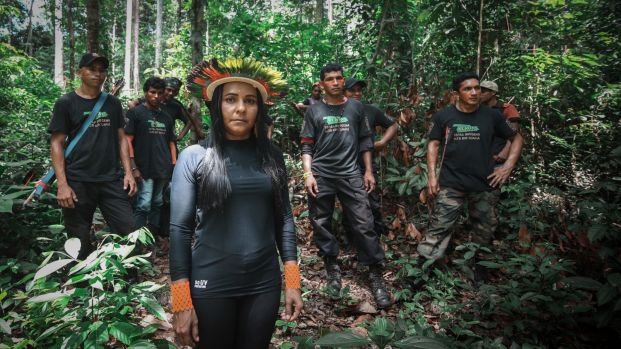
Climate change and colonialism are linked. Here you will find out why.
They might not be two terms you expect to see together in any given context, but climate change and colonialism are inextricably linked. We’re going to take a look at why that is, and why considering the impact of historic and ongoing colonialist practices is so essential in the movement to tackle climate change.
Let’s start with a quick refresher of what colonialism means, before we dig into what it has to do with climate change.
What is colonialism?
Colonialism is defined as ‘control by one power over a dependent area or people’. It generally involves one country taking control of another, often amid violence, and the killing, displacement and/or marginalisation of the existing population.
It dates right back to empires like Ancient Greece, Ancient Rome, Ancient Egypt and Phoenicia – but there have been two main waves of colonialism since then: one beginning in the fifteenth century, which saw European countries colonising lands across North and South America, and another, known as the ‘Scramble for Africa’, which began in the nineteenth century.
Colonialism has been responsible for centuries of harmful extractive practices across Global South regions such as Africa and Latin America that have driven wealth in the Global North and poverty in the Global South.
So what’s climate colonialism?
There’s two main ways to look at climate change in the context of colonialism. As The Conversation put it: “Connecting climate change to such acts of colonization involves recognizing that historic injustices are not consigned to history: their legacies are alive in the present.”
The first is about the historic causes of climate change. The Global North is responsible for the climate crisis we’re currently living through – in fact, Global North countries are responsible for over ninety-two per cent of carbon emissions.
Yet, it’s Global South countries – which are also disproportionately impacted by poverty, which also has its roots in exploitative colonial activities and practices – that are experiencing the worst impacts of climate change, in particular of extreme weather events.
As a 2022 report from Greenpeace UK stated: ‘The environmental emergency is the legacy of colonialism.’ It’s this injustice that has sparked a wave of calls for climate reparations – essentially calling on wealthy countries in the Global North (that have caused climate change) to financially support the countries that have done the least to cause climate change in order to respond to the impacts that it is having on them.
This was recognised back in 2009, when wealthy countries pledged to deliver USD 100 billion every year in climate finance to developing countries from 2020 to 2025. It is now 2023, and the promised funding has not been delivered in full in any year so far.
The second way that climate colonialism is manifesting itself is through the exploitation of the resources of the Global South by countries in the Global North in order to further their climate agendas.
As the University of Oxford puts it: ‘Under the veil of “development projects” and “carbon offsetting”, western countries and companies can continue to pollute as normal, which disproportionately affects BIPOC [Black, Indigenous, People of Color] folk in both developed and developing countries.’
‘Further,’ it adds, ‘many of these solutions involve displacement of Indigenous populations from their lands leading to widespread human and land rights abuses.’
One example of this, according to Fair Planet, is Global North-backed afforestation and reforestation projects, some of which have been shown to involve human rights abuses, land grabs and violence in parts of Africa, Latin America and Indonesia.
As Vijaya Ramachandran, Director for Energy and Development at the Breakthrough Institute, wrote in 2021, ‘Pursuing climate ambitions on the backs of the poorest people in the world is not just hypocritical – it is immoral, unjust, and green colonialism at its worst.’
From climate mitigation and adaptation to loss and damage, current climate solutions will remain inequitable and ultimately insufficient if we do not focus on the impact that colonialism is having on developing nations that have fewer resources to build climate resilience.
What has been said about climate colonialism?
The conversation about climate colonialism and related issues – such as calls for climate reparations, for loss and damage financing, and for Global North countries to take responsibility for their part in the climate crisis – has quickly escalated in recent years, particularly through the voices of and calls to action made by activists and organisations across the Global South.
As Prime Minister of Barbados Mia Mottley (who is spearheading a potentially groundbreaking climate finance solution called the Bridgetown Initiative) said at the UN Climate Change COP26 in 2021, ‘We do not want that dreaded death sentence and we have come here today to say, “try harder”.
’Following COP26, Ugandan climate activist Vanesssa Nakate put it this way: ‘We cannot adapt to starvation. We cannot adapt to extinction. We cannot eat coal. We cannot drink oil. We will not give up.’
A very significant moment came in 2022 when the Intergovernmental Panel on Climate Change (IPCC), in its sixth report on the impact of global warming on the planet, included the term ‘colonialism’ in its report summary – for the first time in IPCC history.
In this report, the IPCC asserted that historic and ongoing forms of colonialism had directly exacerbated the vulnerability of specific people and places to the effects of climate change.
Who is this affecting?
People living in developing countries in Africa, Latin America and Asia are all grappling with the effects of climate colonialism, along with those in especially climate-vulnerable places like the Caribbean. Across these regions, millions of people have lost their livelihoods, their homes, family members and more due to the effects of climate change – in particular extreme weather events.
In the last few years, there has been a disproportionate rise in the number of climate-induced extreme weather events around the world.
In 2021, the Global Climate Risk Index, which analyses the extent to which countries and regions have been affected by the impacts of weather-related loss events (storms, floods, heat waves etc.), including human impacts and direct economic losses, said that ‘less developed countries are generally more affected than industrialised countries.’






